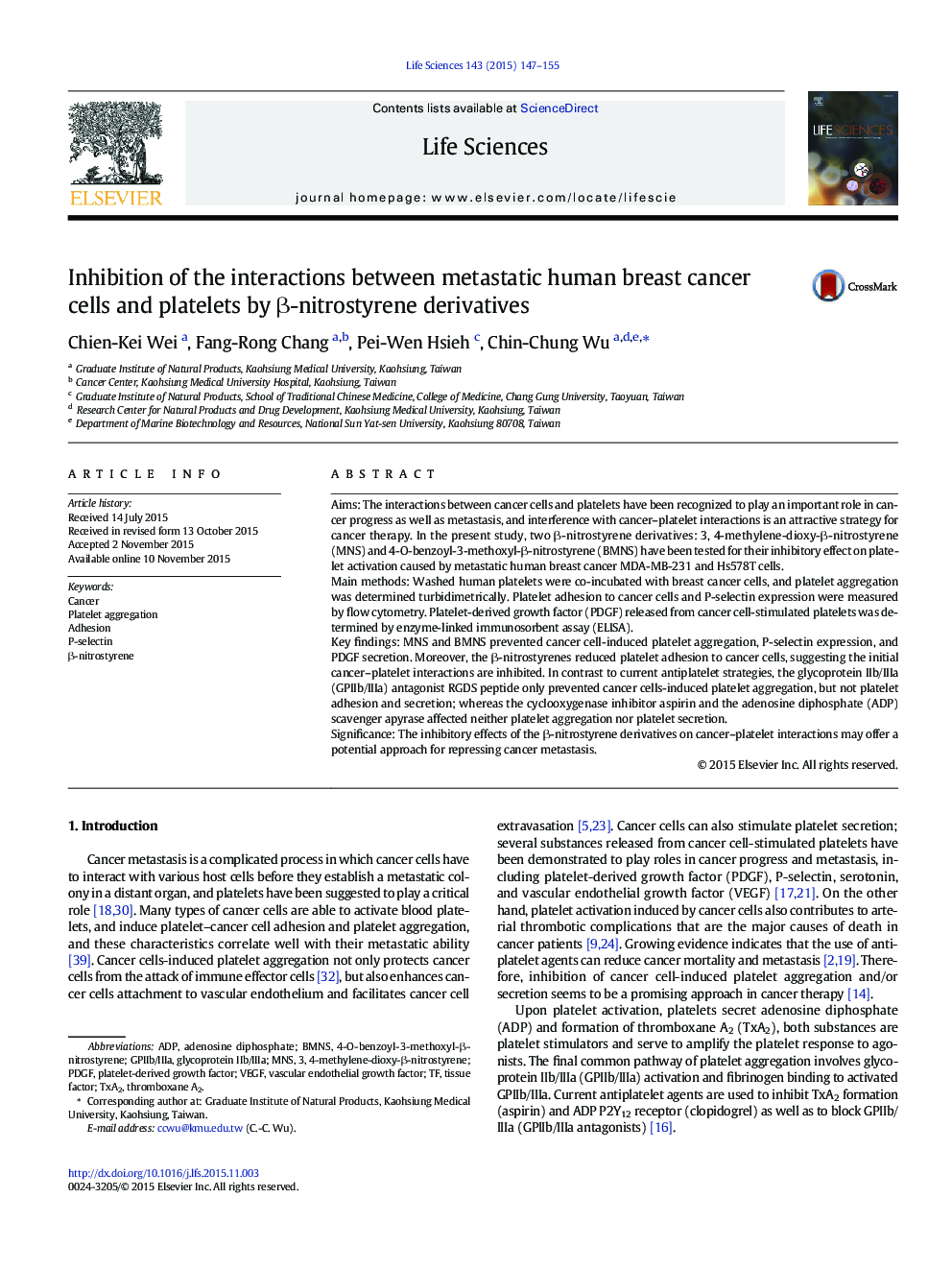| Article ID | Journal | Published Year | Pages | File Type |
|---|---|---|---|---|
| 2550709 | Life Sciences | 2015 | 9 Pages |
Aims: The interactions between cancer cells and platelets have been recognized to play an important role in cancer progress as well as metastasis, and interference with cancer–platelet interactions is an attractive strategy for cancer therapy. In the present study, two β-nitrostyrene derivatives: 3, 4-methylene-dioxy-β-nitrostyrene (MNS) and 4-O-benzoyl-3-methoxyl-β-nitrostyrene (BMNS) have been tested for their inhibitory effect on platelet activation caused by metastatic human breast cancer MDA-MB-231 and Hs578T cells.Main methods: Washed human platelets were co-incubated with breast cancer cells, and platelet aggregation was determined turbidimetrically. Platelet adhesion to cancer cells and P-selectin expression were measured by flow cytometry. Platelet-derived growth factor (PDGF) released from cancer cell-stimulated platelets was determined by enzyme-linked immunosorbent assay (ELISA).Key findings: MNS and BMNS prevented cancer cell-induced platelet aggregation, P-selectin expression, and PDGF secretion. Moreover, the β-nitrostyrenes reduced platelet adhesion to cancer cells, suggesting the initial cancer–platelet interactions are inhibited. In contrast to current antiplatelet strategies, the glycoprotein IIb/IIIa (GPIIb/IIIa) antagonist RGDS peptide only prevented cancer cells-induced platelet aggregation, but not platelet adhesion and secretion; whereas the cyclooxygenase inhibitor aspirin and the adenosine diphosphate (ADP) scavenger apyrase affected neither platelet aggregation nor platelet secretion.Significance: The inhibitory effects of the β-nitrostyrene derivatives on cancer–platelet interactions may offer a potential approach for repressing cancer metastasis.
